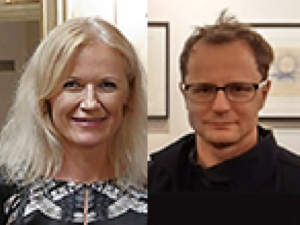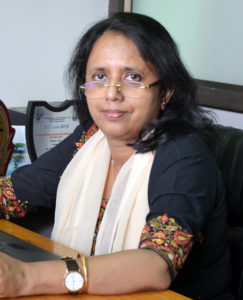
1:00pm-2:00pm: Presentation and Q&A
2:00pm-2:30pm: Light Refreshments
Talk title: Precision Imaging Guides Cancer Therapy
Historically, many of the gains in medicine have been achieved by uniformly applying medical insights to large groups of patients. A combination of increasing biological understanding of the heterogeneity of disease processes and the concurrent expansion of available selective therapeutic interventions has provided the opportunity to improve group outcomes by optimizing treatment on an individual basis. In many cases, molecular imaging is ideally suited to serve as a biomarker to guide therapy selection and dosing, and to provide an early assessment of efficacy. This presentation highlights by example several areas in which imaging helps determine target engagement, dynamic cellular response to treatment, and the effectiveness of immune modulation in oncologic treatment.

Alex K. Shalek, PhD
Pfizer-Laubach Career Development Associate Professor
Institute for Medical Engineering & Science
Department of Chemistry and Koch Institute
Massachusetts Institute of Technology
Abstract: While several methods exist for sampling tissues in clinical contexts, without high-fidelity tools for comprehensively profiling them, we are both limited in our capacity to understand how constituent cells and their interactions impact prognosis, and to select and develop precision therapeutics. Recent years have witnessed transformative and intersecting advances in nanofabrication and molecular biology that now enable deep profiling of low-input samples. Collectively, these afford new and exciting opportunities to study cellular heterogeneity, starting from the level of the single cell, and may unlock the diagnostic, prognostic, and discovery potential of clinical isolates. Illustratively, I will introduce how we can leverage single-cell genomic approaches – and, in particular, single-cell RNA-Seq – to explore the extensive functional diversity between cells, uncovering, from the “bottom-up,” distinct cell states and their molecular drivers. Moreover, I will discuss high-throughput experimental strategies and demonstrate, in the context of Acute Lymphoblastic Leukemia, how they can be leveraged to achieve the statistical power necessary to reconstruct intracellular circuits, enumerate and redefine cell states and types, and transform our understanding of cellular decision-making in health and disease on a genomic scale.
Bio: Alex K. Shalek is currently the Pfizer-Laubach Career Development Associate Professor at MIT, as well as a Core Member of the Institute for Medical Engineering and Science (IMES), an Associate Professor of Chemistry, and an Extramural Member of The Koch Institute for Integrative Cancer Research. He is also an Institute Member of the Broad Institute, an Associate Member of the Ragon Institute, an Assistant in Immunology at MGH, and an Instructor in Health Sciences and Technology at HMS. His research is directed towards the development and application of new technologies that facilitate understanding of how cells collectively perform systems-level functions in healthy and diseased states. Dr. Shalek received his bachelor’s degree summa cum laude from Columbia University and his Ph.D. from Harvard University in chemical physics under the guidance of Hongkun Park, and performed postdoctoral training under Hongkun Park and Aviv Regev (Broad/MIT). To date, his interdisciplinary research has focused on realizing and utilizing nanoscale manipulation and measurement technologies to examine how small components (molecules, cells) drive systems of vast complexity (cellular responses, population behaviors).

Abstract: Gene editing with CRISPR technology is transforming biology. Understanding the underlying chemical mechanisms of RNA-guided DNA and RNA cleavage provides a foundation for both conceptual advances and technology development. I will discuss how bacterial CRISPR adaptive immune systems inspire creation of powerful genome editing tools, enabling advances in both fundamental biology and applications in medicine. I will also discuss the ethical challenges of some of these applications with a focus on what our decisions now might mean for future generations.
About: MIPS IMAGinING THE FUTURE seminar series is aimed at catalyzing interdisciplinary discussions in all area of medicine and disease. The seminar series is open and free to everyone in the Stanford community, as well as anyone from the surrounding community, companies or institutions. Our next seminar will host Dr. Jennifer Doudna, Professor of Chemistry, Biochemistry & Molecular Biology, &Li Ka Shing Chancellor’s Professor in Biomedical and Health, University of California, Berkeley; for her presentation on the “World of CRISPR: Editing Genomes and Altering Our Future”.
More Information: http://med.stanford.edu/radiology/imagining-the-future.html
Register: https://www.onlineregistrationcenter.com/JenniferDoudna

MIPS Seminar: “Tiny Bubbles, Big Impact: Exploring applications of nanobubbles in ultrasound molecular imaging and therapy”
Agata A. Exner, Ph.D.
Professor of Radiology and Biomedical Engineering
Department of Radiology
Case Western Reserve
Location: Beckman Center, B230
2:00pm – 3:00pm Seminar & Discussion
ABSTRACT
Sub-micron shell stabilized gas bubbles (aka nanobubbles (NB) or ultrafine bubbles) have gained momentum as a robust contrast agent for molecular imaging and therapy using ultrasound. The small size, extended stability and high concentration of nanobubbles make them an ideal tool for new applications of contrast enhanced ultrasound and ultra-
sound-mediated therapy, especially in oncology-related problems. Compared to microbub-bles, nanobubbles can provide superior tumor delineation, identify biomarkers on the vascu-lature and on tumors cells and facilitate drug and gene delivery into tumor tissue. The pat-terns of tissue enhancement under nonlinear ultrasound imaging of nanobubbles are distinct from conventional microbubbles especially in tissues exhibiting vascular hyperper-meability. Specifically, NB kinetics, quantified via time intensity curve analysis, typically show a marked delay in the washout rate and significantly increased area under the curve compared to larger bubbles. This effect is further enhanced by molecular targeting to cellular biomarkers, such as the prostate specific membrane antigen (PSMA) or the receptor protein tyrosine phosphatase, PTPmu. The unique contrast enhancement dynamics of nanobubbles are likely to be a result of direct bubble extravasation and prolonged retention of intact bubbles in target tissue. Thus, understanding the underlying mechanisms behind the unique nanobubble behavior can be the driver of significant future innovations in contrast enhanced ultrasound imaging applications. This presentation will discuss the fundamental challenges with nanobubble formulation and characterization and will showcase how the unique fea-tures of nanobubbles can be leveraged to improve disease detection and treatment using ultrasound.

MIPS Seminar
2:00-2:45 PM | Prof. Pawel Moskal
“Positronium Imaging with the J-PET Scanner”
Head of the Department of Experimental Particle Physics and Applications
Marian Smoluchowski Institute of Physics
Jagiellonian University, 30-348 Krakow, Poland
2:45-3:30 PM | Prof. Ewa Stepien
“Preclinical studies of positronium and extracellular vesicles biomarkers”
Head of the Department of Medical Physics
Marian Smoluchowski Institute of Physics
Jagiellonian University, 30-348 Krakow, Poland
ABSTRACT
As modern medicine develops towards personalized treatment of patients, there is a need for highly specific and sensitive tests to diagnose disease. Our research aims at improvement of specificity of positron emission tomography (PET) in assessment of cancer by use of positronium as a theranostic agent. During PET scanning about 40% of positron annihilations occur through the creation of positronium. “Positronium,” which may be formed in human tissues in the intramolecular spaces, is an exotic atom composed of an electron from tissue and the positron emitted by the radioinuclide. Positronium decay in the patient body is sensitive to the nanostructure and metabolism of human tissues. This phenomenon is not used in present PET diagnostics, yet it is in principle possible to exploit such environment modified properties of positronium as diagnostic biomarkers for cancer assessment. Our first in-vitro studies have shown differences of the positronium mean lifetime and production probability in healthy and cancerous tissues, indicating that they may be used as indicators for in-vivo cancer classification. For the application in medical diagnostics, the properties of positronium atoms need to be determined in a spatially resolved manner. For that purpose we have developed a method of positronium lifetime imaging in which the lifetime and position of positronium atoms are determined on an event-by-event basis. This method requires application of β+ decaying isotope that also emits a prompt gamma ray. We will argue that with total-body PET scanners, the sensitivity of positronium lifetime imaging, which requires coincident registration of the back-to-back annihilation photons and the prompt gamma, is comparable to the sensitivities for metabolic imaging with standard PET scanners.
Our research involves also development of diagnostic methods based on the extracellular vesicles (EVs), which are micro and nano-sized, closed membrane fragments. They are produced by native cells to facilitate the transfer of different signaling factors, structural proteins, nucleic acids or lipids even to distant cells. They are present in all body fluids and they are specific to their parental cells.
Our presentation will be divided into two parts. In the first, the method of positronium imaging and the pilot positronium images obtained with the J-PET detector (the first PET system built based on plastic scintillators) will be reported. This part of the presentation will include also description and perspectives of development of the J-PET technology in view of total-body PET imaging. The second part will concern preliminary results of the preclinical studies of positronium properties in cancerous and healthy tissues sampled from patients as well as in the frozen and living healthy and cancer skin cells in-vitro. The second part will include also description of the novel method for the diagnosis of diabetes and melanoma based on EVs used as biomarkers and drug delivery systems.
References:
P. Moskal, …. E. Ł. Stępień et al., Phys. Med. Biol. 64 (2019) 055017
- Moskal, B. Jasinska, E. Ł. Stępień, S. Bass, Nature Reviews Physics 1 (2019) 527
- Roman M… .E. Ł. Stępień, Nanomedicine 17 (2019) 137
- Ł. Stępień et al., Theranostics 8 (2018) 3874
Hosted by: Craig Levin, Ph.D.
Sponsored by the Molecular Imaging Program at Stanford and the Department of Radiology

Please note this seminar is now cancelled and will be rescheduled for a later date.
MIPS Seminar: Investigating and Imaging key molecular switches associated with Acquirement of Platinum-Taxol resistance in Epithelial Ovarian Cancer
Pritha Ray, Ph.D.
Principal Investigator & Scientific Officer F
Imaging Cell Signaling & Therapeutics Lab
ACTREC, Tata Memorial Center
Navi Mumbai, India

Thursday MIPS Roundtable: “Ask the Radiologist about COVID-19”
Hosted by Dr. Heike Daldrup-Link & Dr. Gunilla Jacobson
Join us virtually to ask anything you would like to know about COVID-19 and the current status in our community. This week we will open the floor for questions. Please prepare questions related to COVID-19. Feel free to submit questions in advance to Ashley Williams (ashleylw@stanford.edu) or submit them in the chat on Zoom.
Meeting URL: https://stanford.zoom.us/j/186504700
Dial: +1 650 724 9799 or +1 833 302 1536
Meeting ID: 186 504 700c talking about the future of medicine and science.

Thursday MIPS Roundtable
Hosted by Dr. Kathy Ferrara & Dr. Gunilla Jacobson
Join us virtually to ask anything you would like to know about career plans, collaborations, new expertise and online lectures during the shutdown. Feel free to submit questions in advance to Ashley Williams (ashleylw@stanford.edu) or submit them in the chat on Zoom.
1:30-2:00 PM | Dr. Kathy Ferrara, Ph.D.
“Developing a career plan, collaborations and new expertise during the shutdown”
Professor of Radiology
Stanford University
2:00-2:30 PM | Dr. Angie Louie, Ph.D.
“How to create online lectures using Camtasia, Playposit and Canvas”
Professor of Biomedical Engineering
UC Davis
Meeting URL: https://stanford.zoom.us/j/186504700
Dial: +1 650 724 9799 or +1 833 302 1536
Meeting ID: 186 504 700

Thursday MIPS Roundtable: ePad: A Web-based Imaging Informatics Platform for Image Annotation and Quantitative Analysis
Come learn about ePAD (https://epad.stanford.edu) from Dr. Rubin’s lab, a freely-accessible web-based informatics platform for universal access to radiology images, annotations, and quantitative analysis. We’ll also open the floor to a discussion on integrating ePAD into the SCi3 preclinical imaging workflow and how together we can crowdsource data sharing and reuse, and accelerate quantitative imaging research for everyone.
Daniel Rubin, PhD
Professor of Biomedical Data Science, of Radiology, of Medicine, and, by courtesy, Ophthalmology and of Computer Science
Jason Thanh Lee, PhD
Director of the Clark Center Facility
Laura Pisani, PhD
Associate Director of the Clark Center Facility
Frezghi Habet, PhD
Director of the Porter Drive Facility
MIPS Roundtables will be every Thursday from 1:30-2:30pm showcasing various topics and are open to all interested.
Please note Zoom information does change week to week.
4/9 Meeting URL: https://stanford.zoom.us/j/114866791
Dial: +1 650 724 9799 or +1 833 302 1536
Meeting ID: 114 866 791

Thursday MIPS Roundtable: Dr. Michelle James & Dr. Ted Graves
1:30-2:00 PM – Michelle L. James, Ph.D.
Neuroimmune Imaging Research and Discovery (NiRD) Lab
Assistant Professor of Radiology and of Neurology
Stanford University
2:00-2:30 PM – Edward “Ted” Graves, Ph.D.
Imaging Radiobiology Laboratory, Division of Radiation Oncology Medical Physics
“Using Imaging to Study Radiation Biology”
Associate Professor of Radiation Oncology (Radiation Physics) and, by courtesy, of Radiology
Stanford University
MIPS Roundtables will be every Thursday from 1:30-2:30pm showcasing various topics and are open to all interested.
Please note Zoom information does change week to week.
4/16 Meeting URL: https://stanford.zoom.us/j/406957830
Dial: +1 650 724 9799 or +1 833 302 1536
Meeting ID: 406 957 830